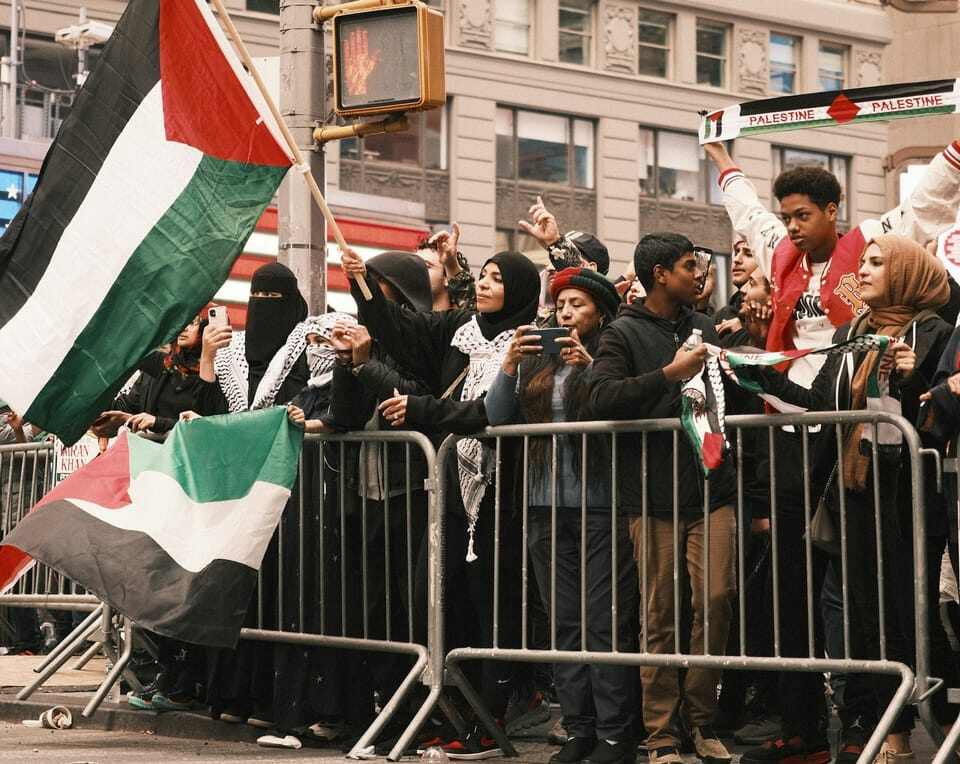Campus protest news coverage — from Israel and the Middle East
Protests have roiled American college and university campuses for more than a month. Since Columbia students set up a “Gaza Solidarity Encampment” on the university’s campus on April 17, Pro-Palestinian protestors at institutions acoss the country have camped on college quads, occupied classroom and administrative buildings, and clashed with counter-protestors, administrators, and the police, demanding that their institutions divest from investments connected to Israel.
Mainstream US media outlets have covered the protests extensively, but less attention has been paid to how the protests are being received in Israel, Palestine, and the rest of the Middle East.
At FilterLabs.AI, our Talisman data analytics platform can track stories across mainstream and social media sources. Most recently, FilterLabs has started to analyze sources in the Israeli and Arab-language media ecosystems. Lately we have been using Talisman to track sentiment toward American universities in order to examine the ideas and arguments driving coverage of the protests.
The Israeli press started to cover the protests as soon as they began in mid April:
Since our Talisman query searched for any discussion mentioning US colleges and universities, it unearthed plenty of news coverage that had nothing at all to do with protests, Palestine, or Israel. However, on April 15th the number of stories in Israeli news about the protests started to rise; it peaked around April 20th. An early commentary noted that university presidents were caught in a difficult balancing act: respecting the rights of the protestors, while also considering the feelings of Jewish students and alumni. Sentiment was positive in stories about police breaking up encampments and arresting protestors. Other articles pointed out that the protests were relatively small. They were unlikely to have lasting effects, for example, on the upcoming US presidential election.
As the campus protests persisted and spread, however, sentiment in the coverage took a dip. Now there were stories about anti-semitism on campus (perhaps fueled by Qatari donations, one article speculated), and reports of Jewish students afraid to walk across campus. “The peak of demonstrations against Israel is yet to come,” blared one headline.
As we examined samples of the discourse Talisman detected, we found that most Israeli media coverage focused on the protests themselves, and the experiences of the Jewish students on campus. There was relatively little discussion of what the larger, even geopolitical implications of the protests might be.
In addition to gathering mainstream news, FilterLabs’ Talisman platform can gather and analyze social media data to get a sense of what people are discussing online, on social sites as well as in forums and messaging apps. The campus protests were big news here, too. Individual Israelis were more willing to speculate about implications of the protests, and who was behind them. People shared stories that tied the protestors to left-leaning foundations funded by George Soros and the Rockefellers. One commentator blamed the protests on decades of bad Israeli policy: “We created a huge problem, and for more than 70 years, instead of solving the problem, we exacerbated it. We honestly earned all the protests against us.” But this post drew a quick retort: “The ‘problem,’ as you defined it, … is that we now have the power and the possibility to defend ourselves. The world does not like it. Never liked it. It loves us victims. Small, poor and weak.”
Palestinian media covered the protests, too. Here, Talisman found some significant sentiment swings in the coverage:
When protests erupted in mid-April, sentiment in stories about American universities went up too. Articles expressed broad solidarity with the protestors at Columbia University. Palestinian press also covered Brown University's willingness to reevaluate its investments, with the possibility that it would divest from Israel. A number of mentions of this topic coincide with the late April–early May spike.
But much of the coverage was less positive. Sentiment began to drop when administrators started to take a harder line with the protestors, sending in campus and local police to clear out the encampments. Several articles charged the universities with trampling on their students’ rights. The implication was that the violence on campus was a mirror, or microcosm, of the US and Israel’s actions in Gaza. Commentators said that the protests were terrifying the “Zionist lobby” and creating a dilemma for Biden, who needed votes from pro-Israel and pro-Palestinian Americans to win the election.
The Qatari media was even more explicit in its criticisms of Israel and the US. After the encampments began, the sentiment surrounding American universities dropped significantly:
Looking more closely at the articles Talisman unearthed, FilterLabs found that the Qatari coverage of the protests was notably different from the Israeli coverage. Qatari news outlets speculated about what the protests meant, both for the Israel-Hamas war and for US domestic politics.
Some commentators said that the protests might indeed affect the upcoming US presidential election. Others said that the protests could force a wedge between the Biden administration and the Israeli government. Still others wondered what the protests said about America. On Al Jazeera Live, people said that the United States’ support for Israel, and its treatment of campus protests, “caused a crack in the image of the United States as a bastion of freedom.”
All three countries, then, are covering the protests differently. Talisman found that most of the Israeli mainstream press coverage was pretty narrow. News stories reported on the events, and commentators were concerned about the safety of Jewish students. Palestinian reports welcomed the protests but usually hinted at their possible political implications. More than elsewhere, the Qatari press focused on the domestic and geopolitical meaning of the protests. They saw evidence of a fraying US-Israel relationship, and American hypocrisy.
With the American school year ending, the protests are already dying out. Whether they will be quickly forgotten or a turning point in Israel-US relations remains to be seen.
%20-%20Tradmark.png)
